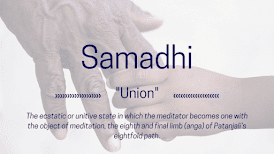Matthew 22: 34-46
When the Pharisees heard that Jesus had silenced the Sadducees, they gathered together, and one of them, a lawyer, asked him a question to test him. “Teacher, which commandment in the law is the greatest?” He said to him, “‘You shall love the Lord your God with all your heart, and with all your soul, and with all your mind.’ This is the greatest and first commandment. And a second is like it: ‘You shall love your neighbor as yourself.’ On these two commandments hang all the law and the prophets.” Now while the Pharisees were gathered together, Jesus asked them this question: “What do you think of the Messiah? Whose son is he?” They said to him, “The son of David.” He said to them, “How is it then that David by the Spirit calls him Lord, saying, ‘The Lord said to my Lord, “Sit at my right hand, until I put your enemies under your feet” ’? If David thus calls him Lord, how can he be his son?” No one was able to give him an answer, nor from that day did anyone dare to ask him any more questions.
Let me make one thing perfectly clear before I begin today, I am a Christian. My interpretation of love is much like the reading above, and as stated in 1Corinthians 13 “If I speak in the tongues of mortals and of angels, but do not have love, I am a noisy gong or a clanging cymbal. And if I have prophetic powers, and understand all mysteries and all knowledge, and if I have all faith, so as to remove mountains, but do not have love, I am nothing. If I give away all my possessions, and if I hand over my body so that I may boast, but do not have love, I gain nothing. Love is patient; love is kind; love is not envious or boastful or arrogant or rude. It does not insist on its own way; it is not irritable or resentful; it does not rejoice in wrongdoing, but rejoices in the truth. It bears all things, believes all things, hopes all things, endures all things. Love never ends.” There is a sense of interconnectedness between the Love of God and the Love of Neighbor. This sense of community is necessary for our very survival. Babies in fact can die from “failure to thrive” if they are not given the care and love they need. “These Two Commandments” must be taken as a whole. I find a Sanskrit version of my Christian philosophy in the combining of three Sanskrit words into a mantra of my own making Bhakti (Devoted to God) Namaste (I Bow to You) Om (the Ultimate Amen).
What I find in the Hindu writings about Bhakti in the Bhakti Sutras of Narada * does not resonate with my Christian Beliefs. There is complete devotion only to God only and no attachment to community. Now granted this is for the attainment of Samadhi (union with the object of meditation) and is a goal. But it does direct the way in which one would comport themselves in the world. This is not how I choose to be. I choose to allow love of other to be part of my life. As stated in Matthew, in my interpretation Love of God and Neighbor are not to be separated. Perhaps I never attain Samadhi, although I have had moments where I feel that I have. But these moments do not bring me into a detachment from neighbor but rather into deeper attachment to neighbor, world, life, and greater acceptance of all to come after (not that I’m ready to move on yet, I’m not). I choose to love God and Neighbor.
Does that mean I am out of alignment with my practice of yoga? Of course not! My Bhakti Yoga is my Christianity. My philosophy for my life may be different from yours, my Christianity as an Episcopalian may be different from yours. But we can all still meet on the mat to practice yoga and deepen (or not), as much as we each individually choose to, our own spiritual practices.
Pictures from https://www.yogajournal.com/yoga-101/40-common-sanskrit-words-for-yogis
* https://www.sivanandaonline.org/public_html/?cmd=displaysection§ion_id=1122




No comments:
Post a Comment